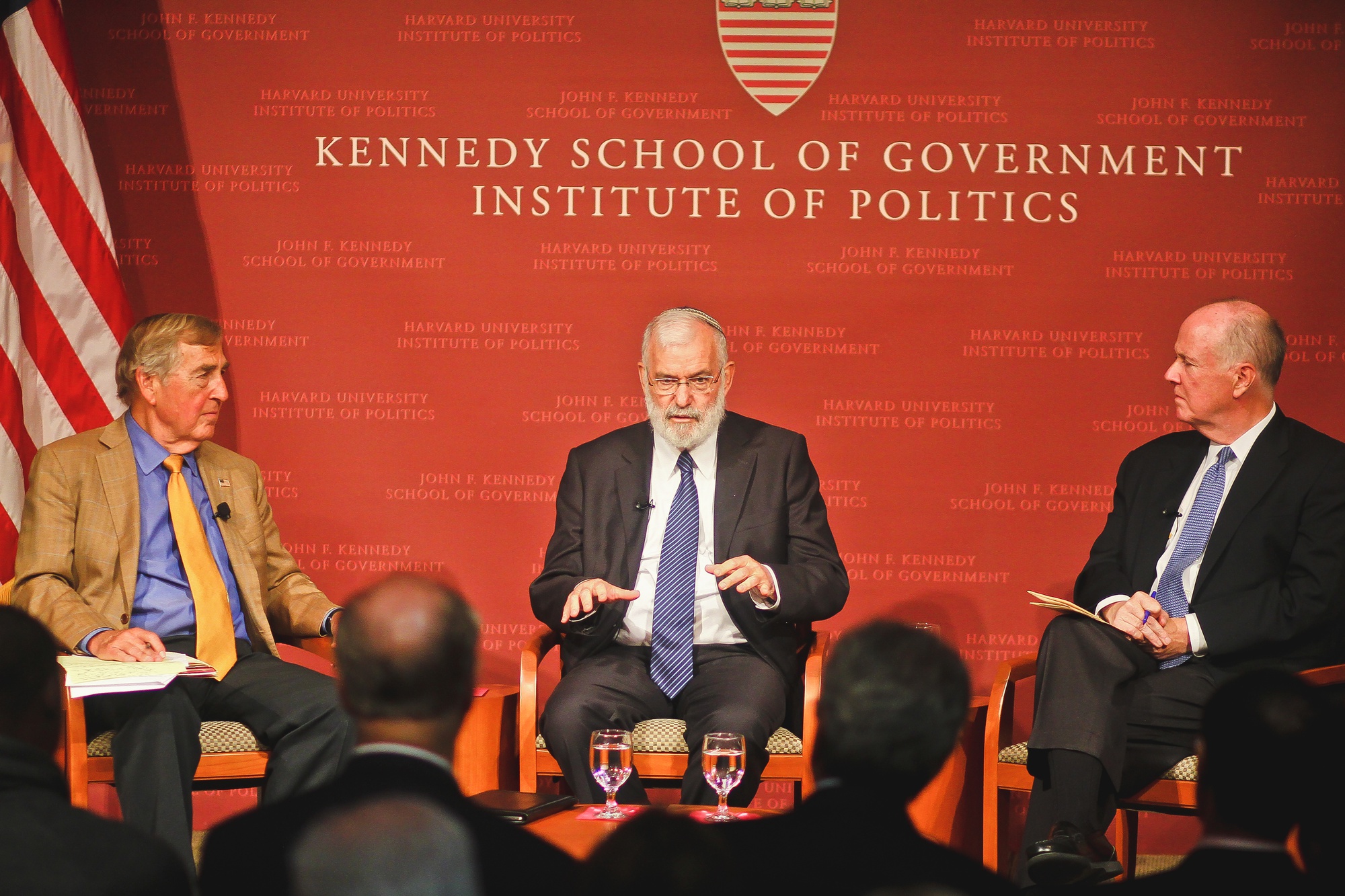
News
Harvard Quietly Resolves Anti-Palestinian Discrimination Complaint With Ed. Department

News
Following Dining Hall Crowds, Harvard College Won’t Say Whether It Tracked Wintersession Move-Ins

News
Harvard Outsources Program to Identify Descendants of Those Enslaved by University Affiliates, Lays Off Internal Staff

News
Harvard Medical School Cancels Class Session With Gazan Patients, Calling It One-Sided

News
Garber Privately Tells Faculty That Harvard Must Rethink Messaging After GOP Victory
Forum Looks at Approaches to ISIS, Iran

Former Israeli national security advisor and retired Major General Yaakov Amidror and former American national security advisor Thomas E. Donilon weighed in on strategies for negotiating with Iran and approaching the Islamic State of Iraq and Syria at the Institute of Politics on Tuesday night.
During the conversation, which was moderated by Belfer Center Director and Kennedy School Professor Graham T. Allison, Amidror said that ISIS is a part of a larger problem stemming from Islamic extremism in the Middle East.
“From the Israeli perspective, ISIS is one of many Islamist groups who, despite their differences, all believe that Islam should control the Middle East,” Amidror said.
When Allison, suggesting that Iranian-sponsored groups have been effective in countering ISIS, asked them whether enlisting Iran’s help on the issue would aid American efforts to defeat the group, both panelists rejected the idea.
“There is a way to defeat ISIS with tribes in Iraq and without putting Iran at the center,” Amidror said. “You can recruit the tribes or Iran, but not both.”

Donilon then said that the “authoritarian and sectarian” Iranian-supported government of former Iraqi Prime Minister Nouri al-Maliki raises questions about whether Iran’s involvement in the battle against ISIS would prove beneficial, due to differences in governing styles.
“You have to think about what type of government Iran is interested in having in Iraq. We need a unity government,” he said.
During the second half of the panel, some differences emerged in the speakers' views as Allison asked questions about U.S. negotiations with Iran, focusing on the Geneva interim agreement reached last November.
Amidror said that he felt that Western powers had become too lenient with Iran.
“The Iranians have found ways to improve their economy because of the easing of the economic sanctions,” he said. “If the pressure will not be raised on Iran, then the chances of reaching an agreement with them will decrease.”
Donilon, who was involved in the Obama administration’s efforts to negotiate with Iran, countered that the negotiations did in fact sway the discourse in favor of the U.S. and caused the Iranians to compromise on their nuclear policy.
“The interim agreement is a solid basis for negotiations and froze the existing system,” he said. “Leverage on the long haul is on the side of the international community. We will not accept a bad deal.”
—Staff writer Michael S. Avi-Yonah can be reached at michael.aviyonah@thecrimson.com.
Want to keep up with breaking news? Subscribe to our email newsletter.
